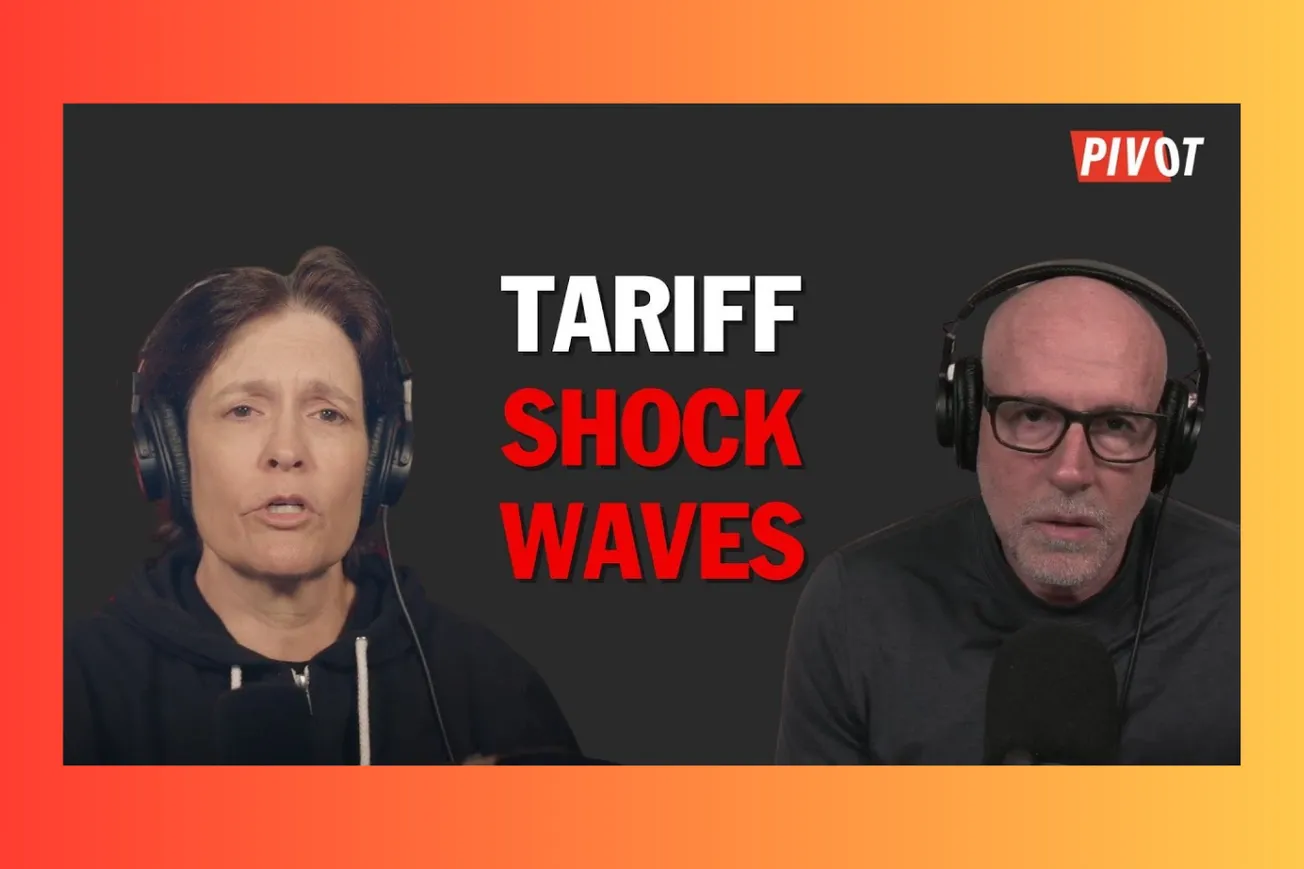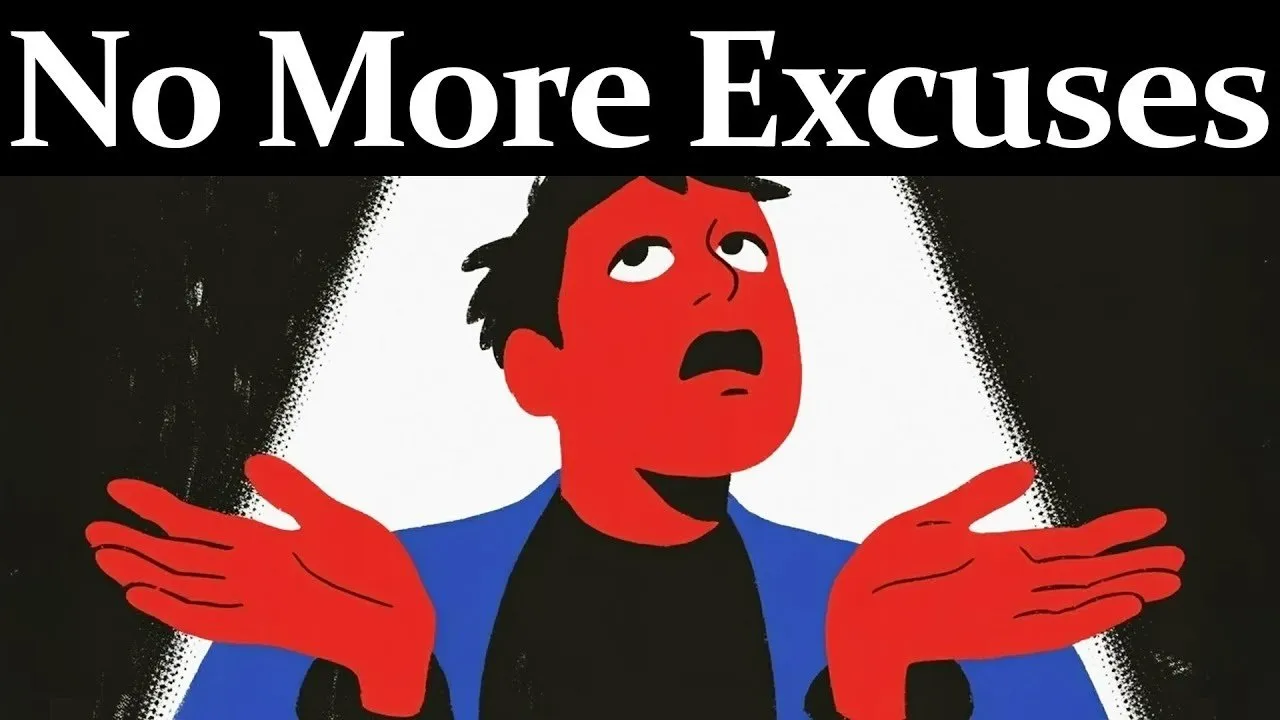Table of Contents
The epic two-day market dive following Trump's sweeping tariff announcements destroyed $6 trillion in value, with Goldman Sachs now putting recession odds at 45%.
Key Takeaways
- Trump's blanket tariff policy triggered the biggest market selloff in recent memory, wiping out $6 trillion in just two days
- China immediately retaliated with 34% tariffs on all US goods, while Trump threatened an additional 50% if they don't back down
- Big tech got hammered worst - Apple dropped 16%, Meta fell 14%, Amazon down 13% as reality hit about overseas manufacturing dependence
- Goldman Sachs raised US recession probability to 45%, with Larry Summers calling this "the biggest self-inflicted wound" in economic history
- The tariff formulas appear to have been generated using ChatGPT rather than actual economic modeling, according to industry insiders
- Warren Buffett's $334 billion cash pile suddenly looks genius compared to tech billionaires who lost tens of billions
- Historical precedent shows these policies backfired spectacularly - the 1930 Smoot-Hawley Tariff Act worsened the Great Depression
- American workers simply don't want factory jobs anymore, making the "bring manufacturing back" promise unrealistic
- Europe and Asia are already reconfiguring supply chains to exclude American businesses, potentially permanent damage to US trade relationships
The Market Massacre That Nobody Saw Coming
Here's the thing about economic policy - when you're playing with $6 trillion, you better know what you're doing. What happened over two days last week wasn't just a market correction. It was a complete meltdown triggered by tariff announcements that seem to have been crafted without any real understanding of how global trade actually works.
The numbers tell the story pretty clearly. US markets went on what can only be described as an epic roller coaster ride. We're talking about the kind of volatility that makes seasoned traders reach for antacids. The Dow, S&P 500, and NASDAQ all took massive hits as investors tried to figure out what these sweeping tariff policies would actually mean for corporate America.
- Goldman Sachs didn't mince words when they raised recession odds to 45% - that's not the kind of number you throw around lightly
- Larry Summers, who's seen a few economic crises in his time, called this "the biggest self-inflicted wound we put on our economy in history"
- The immediate retaliation from China with 34% tariffs on all US goods shows how quickly trade wars can escalate
- Trump's response threatening an additional 50% if China doesn't back down suggests we're nowhere near done with this mess
- More than 50 countries have apparently started negotiations since the announcement, though what exactly they're negotiating remains unclear
What's particularly striking is how quickly the whole thing spiraled. Markets opened Monday morning still reeling from the weekend announcements. There was a brief surge when reports surfaced that Trump might consider a 90-day pause - Jamie Dimon and other banking leaders had apparently been lobbying for exactly that. But the White House shot down those reports as "fake news" faster than you could say "market volatility."
The real kicker? Some insiders suggest the actual tariff formulas being used came straight from ChatGPT. If you type in something like "give me tariffs that balance our trade deficit," you apparently get back calculations remarkably similar to what the administration rolled out. That's not exactly the kind of rigorous economic modeling you'd hope for when dealing with trillions of dollars.
Tech Titans Take a Beating
The technology sector got absolutely demolished, and honestly, it couldn't have happened to a more deserving group of people. After spending months cozying up to Trump, attending inaugurations, and making nice at Mar-a-Lago, the reality of his trade policies hit these companies like a freight train.
Apple led the carnage with a 16% drop over just two days. That's not just a bad week - that's wealth destruction on a massive scale. Meta fell 14%, Amazon dropped 13%, and suddenly all those friendly photos with Trump at various events probably seemed like terrible investments.
- Elon Musk lost $31 billion in net worth during the two-day selloff, though he's been notably vocal about disagreeing with Trump on tariffs
- Jeff Bezos saw $23 billion evaporate, while Mark Zuckerberg lost $27 billion - apparently those Mar-a-Lago visits didn't provide much protection
- The irony is thick here - these are the same people who thought they could manage Trump by staying close to power
- Reports suggest several tech leaders want to make emergency trips to Mar-a-Lago to discuss the tariff situation
- Elon's been posting on X calling for essentially free trade zones with Europe, directly contradicting Trump's protectionist stance
Here's what's really happening to these companies. Take Apple as an example. iPhones currently cost around $1,200-$1,300. With existing tariffs ramping up, that price jumps to about $2,000. If we actually tried to manufacture them in the US like the administration claims we should, you're looking at $3,500 per phone.
That's not a sustainable business model. Americans aren't going to pay $3,500 for an iPhone, no matter how patriotic they're feeling. What happens instead is simple economics - fewer people buy iPhones. Apple's revenue drops by an estimated $30-40 billion according to economists. The company trades at eight times revenue, so you're looking at wiping out roughly a third of a trillion dollars in market value.
The second-order effects get even worse. When Apple employees and shareholders lose massive amounts of wealth, they become less confident about spending money. Consumer spending drops. Other businesses feel the pinch. It's a classic economic death spiral, and we're watching it happen in real time.
Warren Buffett, meanwhile, is sitting pretty with his $334 billion cash pile. The man's 94 years old and still making the rest of these supposed business geniuses look like amateurs. While tech bros were busy taking selfies with politicians, Buffett was quietly building up cash reserves. Guess who looks smart now?
The Manufacturing Fantasy That Will Never Happen
One of the most frustrating aspects of this whole debacle is listening to people like Howard Lutnick talk about bringing manufacturing back to America. The guy went on Face the Nation and literally said we're going to have "armies of millions and millions of human beings screwing in little screws to make iPhones."
It's like listening to someone describe a world that hasn't existed for decades. Americans don't want those jobs. They never really did, and they certainly don't now. Try renovating a house and see how hard it is to find American-born workers who want to do construction. Guess who actually wants to do that work? Immigrants. The same people this administration is busy deporting.
- The idea that Americans are lining up for assembly line work is pure fantasy - you can't even get people to work construction sites consistently
- We're already the second-largest manufacturer in the world, but we make high-value, high-margin products like AI chips and advanced machinery
- The manufacturing jobs we've outsourced are low-value, low-margin work that doesn't make economic sense to bring back
- 98% of businesses involved in global trade are small and medium-sized companies, not just big corporations
- About 40 million American jobs depend directly or indirectly on global trade - that's roughly a quarter of the entire workforce
What we actually need are skilled trades jobs that pay well. HVAC technicians making $30 an hour. Electricians. People trained to install energy-efficient systems. These are real middle-class jobs that can't be outsourced and actually serve a purpose in the modern economy.
But factory work making cheap consumer goods? That ship sailed decades ago, and for good reason. We've purposefully moved toward high-value manufacturing while letting other countries handle the low-margin stuff. It's called comparative advantage, and it's worked incredibly well for American workers and consumers.
The whole premise is stuck in some 1980s time warp. It's like Trump never moved past his initial understanding of trade from 40 years ago. The world has changed. Technology has changed. What Americans want to do for work has changed. But the policy seems frozen in an era that no longer exists.
China Wins Big While America Shoots Itself
If you wanted to design a policy specifically to help China, you couldn't do much better than what we're seeing right now. China was dealing with some serious economic challenges - slowing growth, property market issues, consumer confidence problems. These tariffs just handed them the perfect opportunity to pivot their entire strategy.
Chinese diplomats and business leaders are working overtime right now, traveling to European capitals and other major markets with a simple message: "You may not agree with everything we do, but at least we're reliable trading partners." Compare that to the US, where policy can change dramatically based on whatever the president tweets that morning.
- China's immediate 34% retaliation tariff shows they're not backing down from this fight
- European nations are already in discussions with China about deepening trade relationships as an alternative to dealing with US unpredictability
- Latin American countries that embraced protectionist policies in the 50s and 60s saw their economies stagnate until they opened up to free trade
- The 1930 Smoot-Hawley Tariff Act, which wasn't even as severe as current proposals, helped worsen the Great Depression
- By 1933, real US GDP had dropped by a third, and unemployment hit 25% - imagine that happening today
What's particularly damaging is the unpredictability factor. Businesses can adapt to almost any policy environment if they know what the rules are and that they'll stay consistent. But when you're dealing with someone who might completely reverse course based on a weekend conversation at Mar-a-Lago, how do you plan anything?
Companies are already starting to reconfigure their supply chains to minimize dependence on both US markets and US suppliers. That's not something that gets easily reversed once it's done. We're talking about relationships and infrastructure that took decades to build, being dismantled because of policy uncertainty.
The really troubling part is how this affects America's broader credibility. We've spent 75 years building a reputation as a reliable partner that believes in rule of law and consistent policy. That reputation is worth trillions of dollars in terms of how US companies get valued compared to competitors in other countries.
American companies trade at much higher price-to-earnings multiples than similar companies in Germany, Japan, or China. Part of that premium comes from the "US brand" - the assumption that we have better rule of law, more predictable policies, stronger institutions. When that starts to erode, the financial implications are enormous.
The TikTok Sideshow Gets Even More Ridiculous
In the middle of all this economic chaos, we're still dealing with the ongoing TikTok saga, which has now been delayed for the second time. Trump gave them another 75 days, but the whole thing feels increasingly disconnected from any coherent strategy.
Here's what apparently happened: there was reportedly a deal in place for the sale, involving Oracle, Blackstone, and Andreessen Horowitz - all Trump-friendly entities. But when the tariff announcements came out, China pulled out of negotiations. Can you blame them? Why would you make concessions on TikTok when the same administration is simultaneously launching an economic war against you?
The national security argument for banning TikTok actually makes sense on paper. We would never have allowed CBS, NBC, and ABC to be owned by the Kremlin during the Cold War. Having the average 14-year-old American boy spend 17 hours a week on a platform controlled by the Chinese Communist Party seems like a pretty obvious security risk.
- Only 10% of young Americans have positive feelings about their own country, compared to 50% of older Americans
- The inconsistency in policy - hating TikTok, then loving it, then maybe banning it again - makes us look completely unreliable
- Major Silicon Valley investors in TikTok also happen to be major Trump donors, creating obvious conflicts of interest
- China has no incentive to make deals when they can just wait for policies to change again next week
But the execution has been a complete disaster. The constant flip-flopping - ban it, don't ban it, maybe ban it, delay the ban - makes the US look like we can't make up our minds about anything. China is probably just playing slow ball at this point, figuring they can wait out whatever the current policy happens to be.
The broader issue is that this administration seems incapable of walking and chewing gum at the same time. You can't simultaneously wage a trade war against China while also trying to negotiate complex deals about social media platforms. Pick a strategy and stick with it.
What Investors Should Actually Do Right Now
Here's the most important advice for anyone panicking about their portfolio right now: absolutely nothing. Do not make major investment decisions while you're in the middle of emotional trauma. Whether it's a divorce, losing someone you love, getting fired, or watching your net worth swing wildly because of tariff announcements, you are not thinking clearly when you're stressed.
The temptation is to sell everything and wait for clarity. That's almost always the wrong move. Tomorrow morning, Trump could announce he's removing all tariffs, and markets could surge 2,000 points. If you sold at the bottom, you'd hate yourself forever.
- The worst financial advice ever given was probably Jim Cramer telling people to sell at the bottom of previous crashes
- Within 14 months of major market crashes, we typically recover all losses - but only if you stay invested
- Diversification into European and Asian markets makes more sense now than trying to time US market movements
- Tax loss harvesting might be worth considering, but talk to professionals before making moves
- Having a "kitchen cabinet" of trusted advisors becomes crucial during volatile times
The smarter play, especially given everything we've discussed about US market valuations, is to think about diversification. US stocks have been trading at premium valuations compared to the rest of the world - partly because of the "US brand" premium we talked about earlier. If that premium starts to erode, which seems likely, then having exposure to European, Latin American, and Asian markets starts making more sense.
That's not about selling low and buying high. European stocks have been beaten up too. You're not chasing performance; you're positioning for a world where US exceptionalism in financial markets might not be as reliable as it has been.
The key is not making emotional decisions. Have a plan. Stick to it. Make incremental adjustments based on logic, not fear. And remember that while market volatility is stressful, the real issues - attacks on rule of law, human rights violations, institutional breakdown - are much more serious than whether your 401k is up or down this month.
This whole episode shows how quickly decades of economic progress can be threatened by bad policy decisions. The market reaction is just the canary in the coal mine. The real damage could take years to fully understand.





